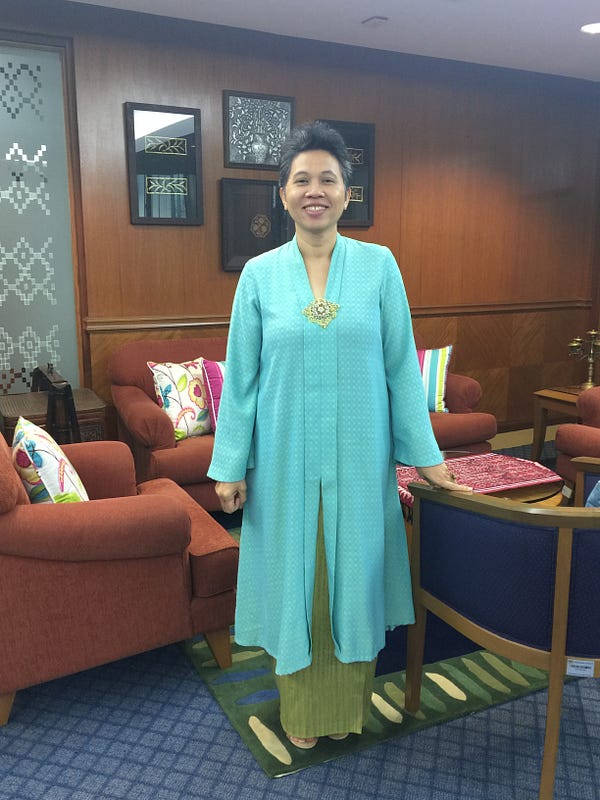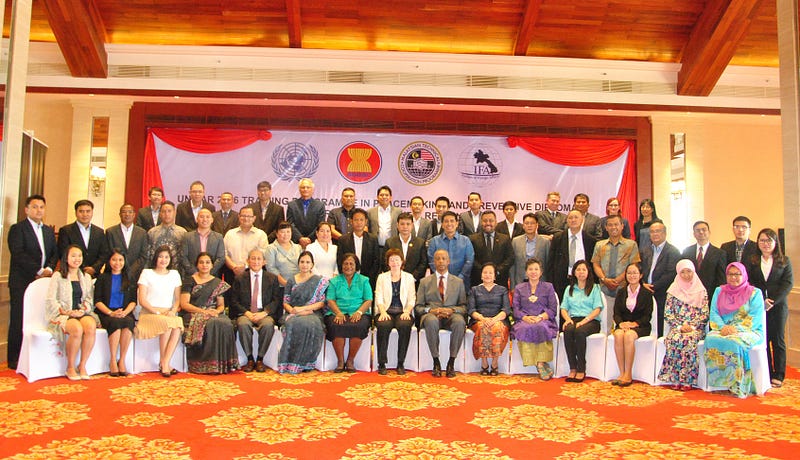“International relations tells us to operate from the head. I think in peacemaking and preventive diplomacy, it is also important that the heart is involved.”

When Kamsiah Kamaruddin, Deputy Director General of the ASEAN Department in the Ministry of Foreign Affairs of Malaysia, applied to take part in the first UNITAR Regional Training Programme in Peacemaking and Preventive Diplomacy for the Asia-Pacific, she had served in a number of bi-lateral posts and engaged in a series of negotiations.
“I wanted to expand my knowledge beyond bilateral negotiations and learn more about conflict analysis, peacemaking and preventive diplomacy."
"Countries need to be constantly on the lookout to resolve issues that could be triggers or flashpoints for confrontation. This is where preventive diplomacy comes in, helping countries to understand and address root causes to better contribute to peace and stability in the region.”
As announced by the UN Secretary-General at the ASEAN Summit, the first UN regional training programme in peacemaking and preventive diplomacy for diplomats and track two officials of the Asia-Pacific, was organized in Vientiane in November 2017. The programme was the first concrete action of the ASEAN-UN Plan of Action (2016-2020), and was hosted by the Ministry of Foreign Affairs of Laos, ASEAN Chair at the time.
Ms. Kamaruddin said, “In many ways, people do not think about this region when they hear the word conflict due to relative peace in recent years. I recall when there was war. It is always good to be prepared to deal with things constructively, to know how to negotiate effectively to prevent violence and deal with what is driving it. These are important skills.”
Two ambassadors counted among the 43 mid- and senior- level officials who completed the regional training programme coming from each ASEAN Member State, and from Bangladesh, Nepal, Papua New Guinea, Sri Lanka and Timor Leste. Officials took part in group work identifying sources of conflict, engaged in conflict analysis, learned about interest-based negotiation theory, worked on listening skills, practiced negotiations based on real cases, and participated in discussions with senior resource persons carrying out good offices in various countries. Sessions focusing on enhancing women’s participation in peace processes and in social transformation through community mediation were also included. The sole female negotiator in the Bougainville peace process also shared lessons from her experience.
“In a negotiation, we can think that facts are clear, concrete—yet how those facts are conveyed is very important to the process. It is also good to know what we know, and think about what we may not know, and seek to gain a better understanding.”
This first regional training programme for officials of the region was made possible through financial support from the Government of Malaysia through the Malaysian Technical Cooperation Programme, and from the United Nations Department of Political Affairs for which the Institute is most grateful.

“What has changed is my awareness, my consciousness. I am now back in bilateral negotiations as an Undersecretary (which includes negotiations with regional organizations.) When a text is being negotiated, instead of becoming defensive, I ask myself, why would they want that text removed? Or, what concern of theirs is addressed by including the new text? It is a deeper level of analysis and understanding, a fuller awareness. Now I seek to see things from their perspective.” she said, with the goal of coming up with a mutually-beneficial process. “I have gained a lot from the training and would recommend it in a heartbeat.”
There is already a waiting list of potential officials for a requested 2017 training for the region. The UNITAR Programme in Peacemaking and Conflict Prevention brings 24 years of experience in the development and design of tailored training programmes for senior and mid-level officials and other key actors in the prevention of violent conflict and promotion of sustainable peace—the top priorities of the UN Secretary-General.

